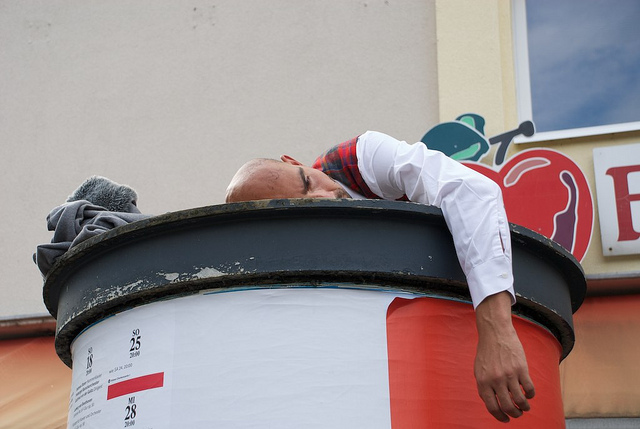You are not only responsible for what you say, but also for what you do not say. – Martin Luther

Your friend has a drinking problem. what would you say? How long would you wait to say it? Too late?
What does that mean?
Most of us are pretty clear on the idea that we are responsible for our own words, and that what we say, we own. The classic example is yelling FIRE in a theater. If there is one, you say it and are responsible for helping people out.
But the second half is not as commonly considered. What if there was a fire in that theater, and you chose to remain silent? You are also responsible for your silence, for what you failed to say.
Not speaking when wrong is being done is not that much different than helping those doing wrong in the first place. If you can’t convince them to stop doing wrong, you then should at least warn others, that they may prepare to stop them.
Why is what you say important?
Words can be powerful. For those who let them, a word of encouragement or support can make a huge difference in their lives. The same can be said of a person who says an unkind word. But what of a person who chooses silence instead of encouragement, or silence instead of constructive criticism?
In their silence, they have become complicit in the problem at hand, whatever that might be. Whether it is for good not done, or bad not called out or prevented, their silence has weakened the community, the society, and humanity as a whole. Yes, it is that important.
Think of all the years (centuries, actually) where few if any people spoke out against the concept of one human owning, as property, another human being. It had been considered the natural order of vanquishes and vanquished to take part in this practice. Now is is almost universally abhorred.
What it took was a large number of people, in a large number of countries to speak out about a formerly unspoken truth, and that truth changed the shape of the world. Imagine the world today if, after WWI, Germany had been conquered, subjugated and enslaved Roman style.
Where can I apply this in my life?
Odds are you aren’t going to be silent if you see slavery in practice, and that is a large part of why it is rarely practiced anymore. But there are other things which happen in our world which are not right, but pass unspoken before our eyes. How different could the world be if, instead of being silent, we spoke out?
From dangerous drug abuse to less-than-voluntary sex work, there are plenty of truly evil things happening in our world. But we turn a blind eye, and do not speak. And in our silence, others suffer. Will our speaking end all suffering? No, of course not. But we can, through acting, help alleviate some suffering.
Whether it is a friend of mine killed by a car full of drunks to other friends who’s lives and health have been ruined by less-than-responsible drug use, many bad things have happened in my silence has caused harm. I have been working to try to help right this, but it will take time and effort, This post and others like it, is a start.
Think about the things going on in your life, and in the lives of those around you. I know, nobody wants to be the one who is negative, and telling others what they can or can’t do, but there is a point where we would all do so willingly. What if a friend was about to commit suicide? Would you intervene then? I would like to think you would.
So what we have is a difference of opinion regarding where to draw the line. When do we play the role of the ‘party pooper’ and try to slow or stop their dangerous or problematic activities? That is a personal call. It also relies on having tact, and being able to persuade them, rather than lecture, and possibly alienate, them.
We will each draw the line at different places for different people. That is human nature. Those more skilled in tact and in the gentle art of persuasion will likely be a bit more active. Those who are a bit more shy will likely be a bit less active. But it is my belief that we all have a role to play, and that more action is better than less.
Thinking back on where and when in your life you allow silence to be your reaction to the ills in your life and the lives of others, what would you consider doing differently? What times in your past should you have spoken up? Are you willing, in a similar situation today, to speak up?
We are responsible for what we say. And we have an obligation to say things, however unpleasant it may seem at the time. What will you say today or this week that you might not have said before considering the meaning of this quote? It is up to you to make that decision, and live with the consequences of what you say, or fail to say.
xxx You are not only responsible for what you say, but also for what you do not say.
From: Twitter, @HawkSMI
confirmed at : first quote, probably a loose translation from the 95 Theses.
photo by willem-jan.beeren







Thank you.
You are most welcome.